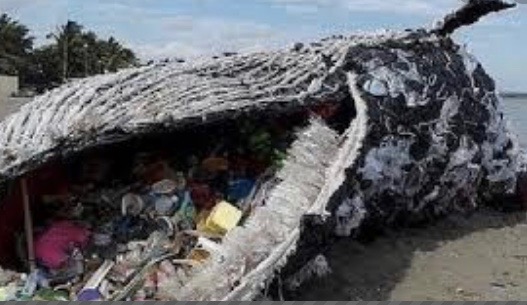NICOLE ALAVERDIAN WRITES–Asia is starting to focus on its own environmental problems, rather than taking on the West’s metaphorical and literal trash. In recent months, many countries, including Singapore and China, have refused to take more trash imports from the West. China, the biggest consumer of discarded plastics, has now banned nearly all such waste imports.
A whopping 75% of globally exported waste ends up in Asia, which has caused serious ramifications to smaller communities that have become dumping grounds. Cast off trash is now being returned to sender—the West. The problem is, the United States and Canada have habitually found it cheaper and easier to “recycle” out of site, out of mind.
This power move from China has resulted in countries such as the Philippines, Malaysia and Indonesia, which still accept waste imports from other countries, to be flooded with double the amount of waste. Many of these countries lack effective recycling and disposal systems. Communities are not only buried in excessive waste, but forced to use unsustainable methods in order to get rid of the trash, including dumping and burning it in fields and waterways. Improperly incinerated plastics emit CO2 into our atmosphere, which in turn contributes to global climate change.
More countries in Southeast Asia are now refusing to take on more imported plastic waste. Vietnam, Thailand, the Philippines, Malaysia and Taiwan have announced plans to limit or ban it altogether in the coming months. How is this going to affect exporting countries? Well, big trash importers such as Canada and the United States will struggle even more with the amount of waste generated that cannot be pawedt off to other countries.
 The West now needs to deal with a plethora of questions, such as: What are we going to do with all that waste? Do we have sustainable recycling methods? How can we limit our global plastic waste in general? Richard Gutierrez, the founder of BAN Toxics, spoke on this particular issue, proclaiming that “China’s ban really changed the landscape. Once they stopped taking in all this plastic, it got people to realize we have a big problem”.
The West now needs to deal with a plethora of questions, such as: What are we going to do with all that waste? Do we have sustainable recycling methods? How can we limit our global plastic waste in general? Richard Gutierrez, the founder of BAN Toxics, spoke on this particular issue, proclaiming that “China’s ban really changed the landscape. Once they stopped taking in all this plastic, it got people to realize we have a big problem”.
And yet, excessive plastic use and waste is not expected to cease anytime soon. Global corporations such as Coca-Cola, PepsiCo and Nestlé, to name a few, are among the biggest contributors to plastic waste. They make a wide array of products that contribute to the epidemic. Yes, there are things we consumers can do to limit our own plastic waste, such as relying on reusable bottles/bags, ditching straws, stop buying products from these companies and in general limit our use of plastic; but there is only so much we can do. It is up to these corporations to step up by providing sustainable choices.

